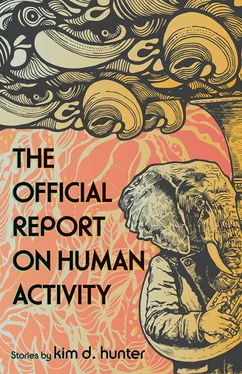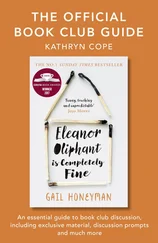“If you knew what the machine was capable of, why didn’t you use it for something good?”
“I’m not sure what it can do. I just have a bad feeling about programs I didn’t open.”
“You don’t know the programs on your own machine?”
“Technically speaking, it isn’t mine.”
The Librarian and the Girl had come to see the Librarian’s boss to confirm preparation for the news conference, which was scheduled for the next day. They had been waiting outside of his office for twenty minutes. The administrative assistant, who usually waved the Librarian through to the boss, had asked them to have a seat and notified the boss that the Girl and the Librarian were waiting. After that, the clock on her desk had her full attention.
Since the video with her and Ipso had been posted on the web, The Librarian had become used to not waiting so long to see the boss. In fact, she had often been ushered into his office with but a moment’s notice and been given overwhelming tasks. Now she was worried. The waiting time had her worried and her agreement with the consultant had her worried. She had promised to retrieve the white machine in exchange for the consultant promising to see a therapist about how the loss of her mother had influenced her career change. The Librarian did not know if the consultant could be trusted to actually see a therapist and she had no idea what she was going to say to retrieve the machine.
The Girl was not worried. She had come to realize that what she knew about the elephant was not common knowledge, that the message that was so plain to her was indecipherable to everyone else. She had been overwhelmed when the Librarian had revealed that fact to her, but not overcome. She felt as if she had something of extreme value, that she had only to bide her time and reveal it at the right moment. She had, though, already composed an introduction to the message.
“Could you please read this?”
The Girl handed the Librarian a small piece of paper with handwriting:
I remember an old picture. Was I asleep? A woman clipped clean wet sheets to a thin line in the sun. People did not expect things to come so quickly. Did people dream of the wind that took the water from their clothes pinned to the line or did the scent of the sun in the sheets turn their sleep over and over? Black and silver one after the other, is this how the sun spoke at night, through the smell of its heat in a dream? Was I asleep?
“You wrote this?”
“I just handed it to you. It introduces the message. When are we going to be on television?”
“Who knows? Who cares? You wrote this? Your family didn’t have a dryer?”
The Librarian began to feel a strange guilt that she had thought the Girl was barely literate. Then the Librarian became distracted. The administrative assistant’s eyes lit up as the clock hit five o’clock. She stood to leave.
“I hope you have a good time on television,” she said.
“When are we going to be on television?” the Girl said.
The Librarian had no reply. What’s more, to her mind, there was no good answer except never. She hated being on television, in front of the media, especially with her boss. He never said anything she could support and he never stopped talking. She didn’t especially like the more powerful, aggressive reporters either.
She had only become a media relations person because of an incident at college where she had been studying library science, a major into which she had also drifted. She had not declared a major, but a professor from religious studies whom she found both physically attractive and intimidating confided in her that he had once fallen in love with a librarian.
“Did you get to the library often?” she asked, then blushed at her own question.
“I think you’d do well behind the help desk,” he replied, and she blushed again.
After that, she officially declared her major as library science, landing a work-study position in the psychology section of the library. Ironically, just as she was hired, the school fell on hard financial times and, with more students finding materials online, library staff was in serious danger of being cut.
That began to change when a graduate student, of whom she was vaguely aware outside of class, wrote a play, The Official Report on Human Activity. The text of the play got mixed reviews in the local media, but the fact that a play that was yet to be performed got any notice was a testament to the media relations skills of the playwright. He made five-by-five-foot posters with oversized text of quotes from the reviews, good, bad, and unintelligible, and plastered them illegally in strategic areas around town. Smaller text on the posters alluded to some of the more salacious parts of the play. The playwright granted the university library sole proprietorship over the text, effectively setting it loose in the public domain. The play was scheduled to be performed off campus thirty days after the posters went up.
The professor of religious studies had come to the library during the hours the Librarian was there, ostensibly to find his way through some lost books of the Bible. He approached the Librarian at her desk, oblivious to the line of students seeking her help. He was soon ushered to the rear where he waited a half hour to see her. He noticed all the computer terminals also had waiting lines. When his turn to speak to her finally arrived, the Librarian was frustrated and tired.
“The library has become quite the place. Are they serving beer somewhere?”
“If they are, I’ll take two.”
A group of three students rushed the desk.
“Excuse me, but we’re looking for a copy of The Report ,” said their designated spokeswoman.
The Librarian looked up exasperated and handed her a form and a slip of paper with the number 244 on it.
“Take this number, complete this form, and return it to the next desk. Be sure to put your contact information next to the number from the slip. Any perceived alterations to the number will result in forfeiture of your position in the cue and you will have to begin the process from the start. Thank you and good luck.”
With that the students walked away, staring at the information and forms.
“Is this play going to be performed—”
Before the professor could finish his question, another student approached the desk looking for a copy of The Report . The Librarian repeated the routine with the number and forms. The professor’s curiosity was piqued. He lied to a security guard, who parted a line of students to allow him access to the text online.
The more he read it, the more upset he became. The play was about a young woman of indeterminate ethnicity who leaves her family to go fight in the brown hemisphere’s water wars sparked by global warming, though it is unclear who she supports. Her grandfather is an old man who struggled with his career choice and only becomes disciplined enough to choose on his death bed. Her father is a banker who forces his most attractive clients to have sex with him but is plagued by nightmares.
In one recurring dream, he is a white woman in the nineteenth-century southern US, who, when it is discovered she is having sex with a half-dark house slave, is forced to escape with Harriet Tubman. Of course the house slave also has to vacate the premises.
The only thing that makes the trip even slightly bearable is that the woman and her lover are together. Though once, when they slip off to have sex, Tubman nearly leaves them behind to fend for themselves without map or weapon in the wilderness.
Right after that episode, the sky to the north darkens. That afternoon, it begins to rain. The party comes to a mountain as rocky as it is steep. Hounds bay in the distance behind them. The woman turns around to find Tubman and the escaped house slave arguing. His eyes that had always seemed soft to her are wild and tired looking. Tubman, on the other hand, is firm and fearsome. She flails her arms and points behind them, the direction from where they’d come. Then she stops. Her voice is low and calm.
Читать дальше












